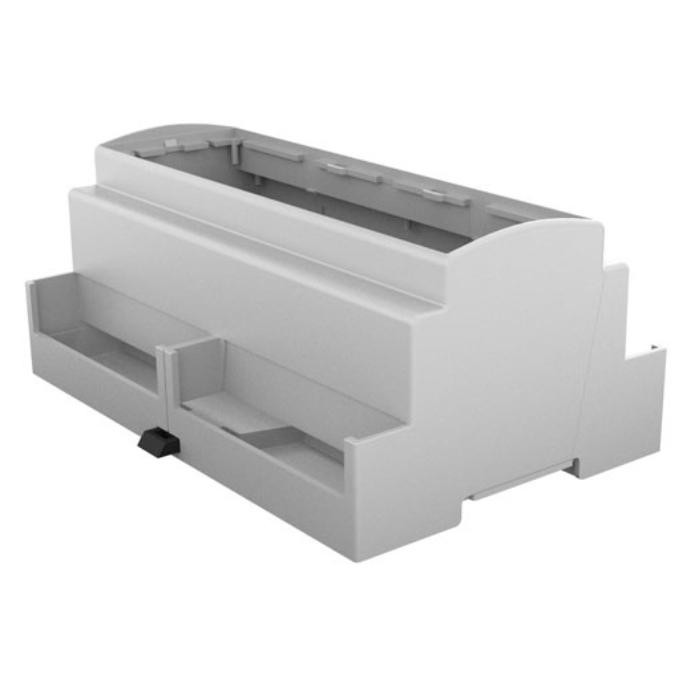Plastic Enclosure Box: Waterproof, Durable, and Perfect for Outdoor Use
When it comes to protecting sensitive electronic components or wiring in challenging environments, a plastic enclosure box is a top...

When it comes to protecting sensitive electronic components or wiring in challenging environments, a plastic enclosure box is a top choice for engineers, DIY enthusiasts, and contractors alike. Designed to offer maximum protection, these enclosures are built to withstand the harsh elements of outdoor use—rain, UV rays, temperature changes, and even dust or accidental impacts. Whether you’re installing electrical systems in your backyard, setting up control panels on a factory floor, or integrating solar power solutions, plastic enclosures provide the ideal combination of affordability, durability, and performance.
Why Choose a Plastic Enclosure?
Plastic enclosures have become increasingly popular in both residential and industrial applications. Unlike metal alternatives, plastic offers natural corrosion resistance, making it a great option for humid or coastal areas where rust can be a major concern.
Additionally, plastic enclosures are lightweight and easy to handle, which simplifies installation and transportation. Their insulating properties also reduce the risk of electrical conductivity, making them safer around exposed wiring or sensitive electronics.
The most commonly used materials for these enclosures include polycarbonate, ABS, and fiberglass-reinforced plastics. Each of these has unique strengths, but all are designed to offer robust protection and longevity.
Waterproof Protection for Harsh Environments
One of the primary reasons people opt for a plastic enclosure box is its ability to resist water intrusion. Most outdoor-rated enclosures come with IP (Ingress Protection) ratings that ensure the box is sealed against dust and water. For example, an IP65-rated box is dust-tight and can resist water jets from any direction, while an IP67-rated enclosure can even withstand brief immersion in water.
This level of protection is essential for outdoor installations, especially in areas exposed to rain, snow, or flooding. Applications such as irrigation control systems, exterior lighting setups, marine electronics, and weather monitoring stations all benefit greatly from waterproof plastic enclosures.
Durability That Withstands the Test of Time
Durability is another major advantage of plastic enclosures. High-quality materials like polycarbonate can withstand significant physical impact without cracking or deforming. Many enclosures are also UV-stabilized, ensuring they won’t become brittle or fade when exposed to direct sunlight for extended periods.
Additionally, these boxes often come with reinforced seals, stainless steel latches, and hinges designed to prevent wear and tear. With minimal maintenance, a good-quality plastic enclosure can last for years, even in the most demanding outdoor conditions.
Versatile Applications
Plastic enclosure boxes are not limited to any one type of installation. Their versatility allows them to be used in a wide range of applications, including:
- Home automation systems: Protect smart home components and outdoor cameras from the elements.
- Renewable energy installations: Safeguard solar panel connections, battery storage units, and inverters.
- Commercial signage and lighting: House electrical components behind illuminated signs or billboard systems.
- Telecommunications: Secure networking gear, routers, and signal boosters on rooftops or towers.
- Agricultural equipment: Protect sensors, timers, and controllers used in irrigation and greenhouse management.
Because they come in a variety of sizes, shapes, and mounting styles, plastic enclosures can be easily customized with cutouts, ports, and cable glands to meet specific needs.
Easy to Install and Modify
Another perk of plastic enclosures is how easy they are to install and modify. Most come with pre-drilled mounting holes, internal panels for circuit boards, and external brackets for wall or pole mounting. Users can easily drill or cut into the plastic without needing special tools, unlike metal boxes which often require more labor-intensive modifications.
Some models also feature transparent lids, which allow users to monitor display screens or indicator lights without having to open the box—particularly useful in remote monitoring systems.
Final Thoughts
A plastic enclosure box is an excellent investment when you need a cost-effective, reliable solution for outdoor protection. It offers the waterproofing, durability, and flexibility necessary for a wide variety of environments and projects. Whether you’re a professional installer or a weekend DIYer, using the right enclosure can ensure your equipment stays safe and functional—rain or shine.



